The Epic Canoe Journey of George W. Gardner: PART 4
A look at domestic life on the Mississippi including the challenges of cooking and setting up camp
To get the most enjoyment out of this serialized story, please start at the beginning.
Release Date: April 22, 2025
The Rhythm of River Life
Although there’s no evidence to suggest George Gardner and his canoeing partner, William Eckman, had a hard and fast timeline for their adventure – theirs was, after all, a journey of leisure, the gentlemen did establish some routines along the way, at least according to George’s log.
At the onset, by an implied understanding the light weight assumed charge of the culinary department while I discharged the onerous duties of chambermaid, and in a few days our respective duties were so evenly balanced that the evening meal (we had but two) would be served at the same moment that the pitching of the tent and making of the bed was completed; the same rule held good at breakfast. 1 ~ George Gardner
Most days began with William cooking a hearty breakfast over the small stove or campfire, while George dismantled the camp and readied the canoes. After breakfast, and while the waters were still relatively calm, the two covered as much distance as possible – late afternoon winds were common and exhausting.
We made short runs and early camps, averaging about thirty miles between 8 a.m. and 4 to 4:40 p.m. Later on a steady pull of fifty miles and even more in ten hours was an easy run, made without great exertion or weariness, and as our canoes were sharp fore and aft, and drew but four inches, it can be seen that the current was but little assistance. 2 ~ George Gardner
This timing aligned closely with typical steamboat schedules of the era, which also favored morning departures and afternoon arrivals when visibility was best. Their mileage of 30-50 miles per day was impressive for human-powered travel, comparing favorably to the 50-100 miles steamboats might cover in a day, though far outpacing the older flatboats that might manage only 15-20 miles daily.
If the weather permitted, or if they’d successfully traversed an especially challenging stretch of water, George and William would sometimes reward themselves with a midday meal, and what a spectacle it would have been:
...an extemporized table was made on deck with hatches, the spirit stove, and mess chest were brought forth and a midday meal of hot soup, hardtack, pickles and hot coffee was served in style, as we floated on broadside to. 3 ~ George Gardner
Their reliance on hardtack — a dense cracker-like bread made famous during the Civil War for its long shelf life — along with bacon, beans and coffee reflected the typical trail foods of the time, chosen for portability and preservation rather than culinary delight. That said, at least a few times, George mentioned the two enjoyed “an occasional variation of fresh meat, deviled ham, lobster, and other canned edibles.”
By four o’clock, the men would begin to look for a camping spot – a task which was easier said than done. seeking high ground safe from rising water, with good visibility and, when possible, natural shelter from wind.
And then after dinner — which usually consisted of fried bacon, potatoes and hard tack fried in the bacon fat, baked beans, pickled onions and coffee — the two weary travelers would enjoy their pipes and a hot punch, likely an alcoholic concoction known as “stone fence” made with applejack, hot water and nutmeg, and popular with riverboat men of the time. They’d usually do some writing in their trip logs, and be turned in by 8 o’clock.
Yet for all their careful planning, the river demanded flexibility. Flash storms, unexpected shoals, or enticing diversions frequently altered their schedule. Some days brought fifty miles of progress; others, battling headwinds or dangerous currents, yielded barely five.
Please hit the ❤️ button at the bottom of the page to help this story reach more readers. And if you’re not already a subscriber, I’d love to have you join me. Thanks!
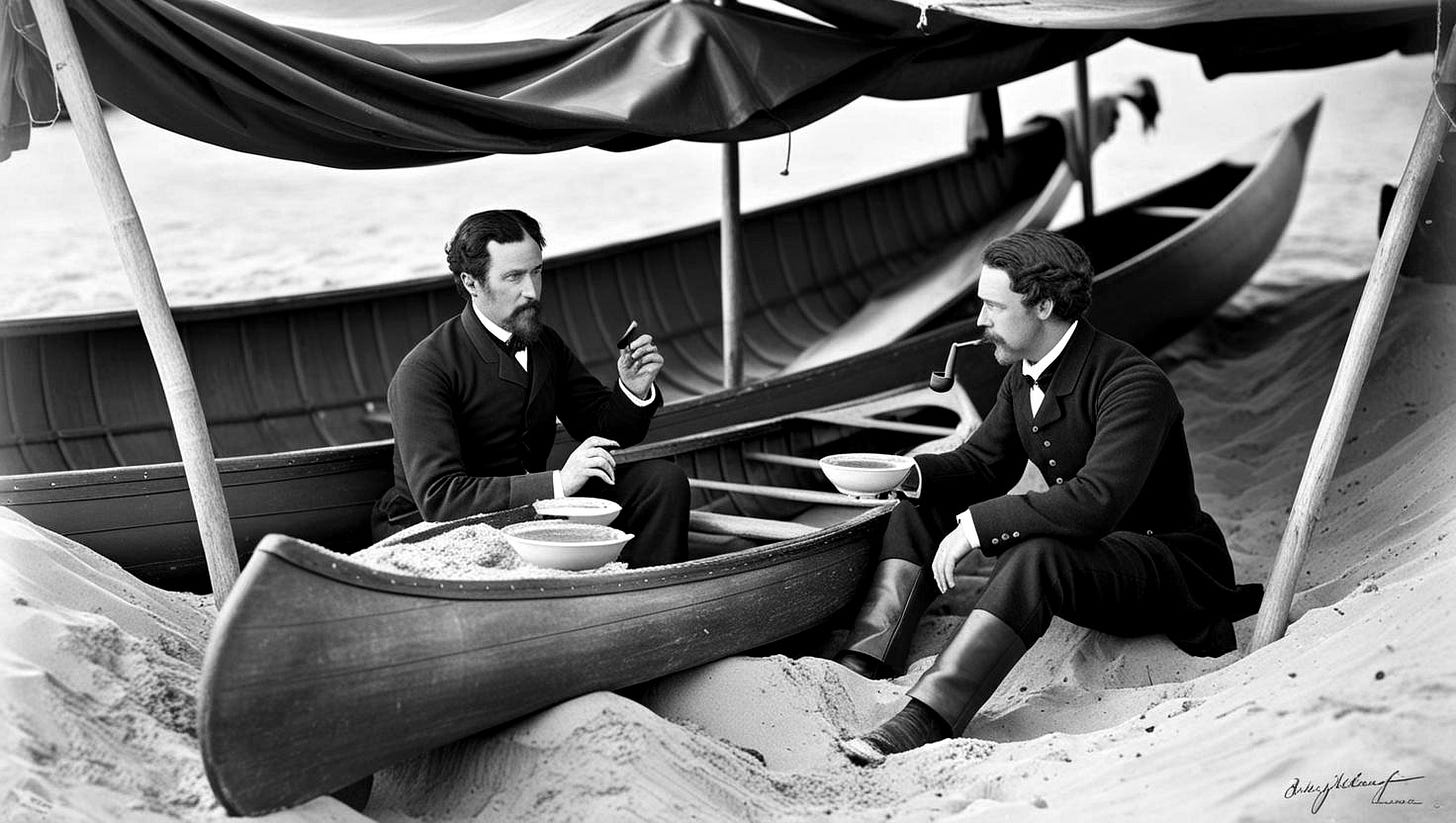
The challenges of a riverbank campsite
Of all the challenges the Ohio and Mississippi rivers threw at George and William, finding a place to safely spend the night was, perhaps, the most challenging. The two men from Cleveland had decided early on in their journey they’d try to camp '“rough” rather than stop in river towns along the way and indulge in the hotels and boarding houses established for riverboat customers, businessmen and other travelers.
Their decision was made, in part, for practical reasons. In 1883, vast stretches of the rivers were uninhabited, so finding suitable public accommodations beyond the shore would have been nearly impossible in many places. Relying on hotels and boarding houses would also have required them to make a plan and stick with it, something neither George nor William was interested in doing.
Then again, the decision was likely also a preference. Both men were experienced canoe campers, having participated in a number of camping events coordinated by the Cleveland Canoe Association as well as various other associations and groups. Sleeping under the stars and elements may have been something George and William looked forward to, seeing it as just another component of their adventure, and one which would make for good stories as well as bragging rights among their peers.
This entry from George’s log would seem to be written for just such a purpose.
Some remark has already been made as to the difficulty of securing comfortable camping ground, and our own ingenuity was frequently exercised to overcome this difficulty – how we did it on one occasion is told as follows:
Long stretches of low sandy beach reaching far inland on the one hand, and a bluff bank on the other, with a long, narrow tow head (island of sand) in midstream, offered no suggestion of a camping ground. After a careful survey it was agreed upon that it was sand or nothing, and calculating the strength of the wind, and the unstable nature of a tent pin in loose, drifting sand, it was further agreed that the tent was not available – that the canoes must provide a resting place.
The cramped dimensions of the flagship's cockpit did not commend the City of Cleveland as a desirable place of rest, and the rotund form of the Commodore quite precluded the idea of his occupancy thereof, so for the nonce an exchange was agreed upon. Each became the guest of the other, and the host in each instance slept abroad, the better to accommodate his guest.
No material being at hand wherewith to build a campfire, the pocket stove was made to serve. Pea soup, bacon, beans, hardtack and coffee served seriatim, constituted the meal; the wind contributed to the hilarity of the occasion and the relish of the feast by depositing a semi-occasional handful of sand on the viands. The meal was one of quantity rather than quality, amount rather than flavor.
Having settled the canoe firmly in trenches scooped out of the sand for the purpose, a shelter was rigged over the cabins with sails and rubber blankets. A somewhat lugubrious discussion of the situation was entered into over a bowl of hot and well sanded punch and an accompanying pipe.
Suppose some monster of the deep should crawl upon the low shelf of sand, some river pirates should float down upon us, what then?
Or, what seemed more possible, suppose that in the dead vast and middle of the night the wind should cover us in a blanket of sand, bury us under and erect over us a mountain of sand; or suppose that this erratic flood should rise and float us away all unconscious.
These were contingencies upon which the moon declined to throw a ray of light.
Half an hour after the final good nights had been said, the rain began to patter down upon the improvised shelter. It may fairly be said that the slumber was not over sweet or balmy.
Wind, rain, and sand had been active during the night; there was not much of either, but what there was was ample. Upon an inspection the following morning, it was found that small rivulets had crept in under the blankets and soaked the canvas uniforms in spots, while the sand had driven in at every crevice; sand was everywhere – in hair, eyes, ears, and noses, on the garments, in the garments, and under the garments – a universal blanket of sand covered and permeated everything! It would be an easy matter to write a chapter on sand, but I forebear.
At 8:00 we got underway, sans breakfast, a lack of fuel, and a pronounced longing to leave the sandbank being more potent than appetite. The wind was in our teeth, and it was no gentle breeze. It never was a gentle breeze. 4 ~ George Gardner
George and William's willingness to endure discomfort, solve problems creatively, and maintain good humor even when covered in sand spoke to the adventurous spirit that drove them to undertake their journey in the first place.
That spirit would be deeply tested as they approached the most challenging section of their journey, the mighty falls of Louisville, Kentucky.
Copyright 2025 Lori Olson White
Have you read the incredible true story of Aimee Henry and Mary Martha Parker? Call Me a Bastard is my longest serialized story to-date, and the one that started it all here on the Lost & Found Story Box. Check out the story from the beginning.
And in case you missed it, here’s a link to my most popular short series to-date, The Incorrigible John George. I hope you’ll agree that “incorrigible” is the best way to describe this old scoundrel!
Please hit the ❤️ button at the bottom of the page to help this story reach more readers. And if you’re not already a subscriber, I’d love to have you join me. Thanks!
The Lost & Found Story Box is reader-supported. When you buy through links on our site, we may earn an affiliate commission.
End Notes
1 “The Mayor in a Canoe: His Adventures. Between Porkopolis and the Crescent City in Midwinter”, The Cleveland Leader, Cleveland, OH, January 26, 1890, P. 10.
2 “The Mayor in a Canoe: His Adventures. Between Porkopolis and the Crescent City in Midwinter”, The Cleveland Leader, Cleveland, OH, January 26, 1890, P. 10.
3 “Paddling their own Canoe: Two Gentlemen from Cleveland arrive in their Frail Craft”, The Times-Democrat, New Orleans, LA, January 2, 1884, P. 2.
4 “Paddling their own Canoe: Two Gentlemen from Cleveland arrive in their Frail Craft”, The Times-Democrat, New Orleans, LA, January 2, 1884, P. 2.


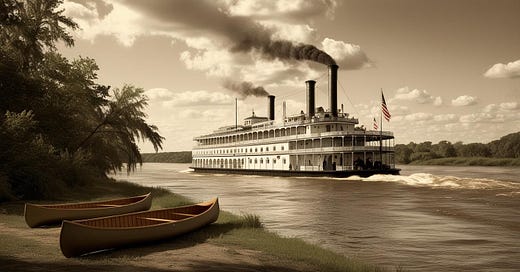



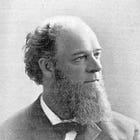
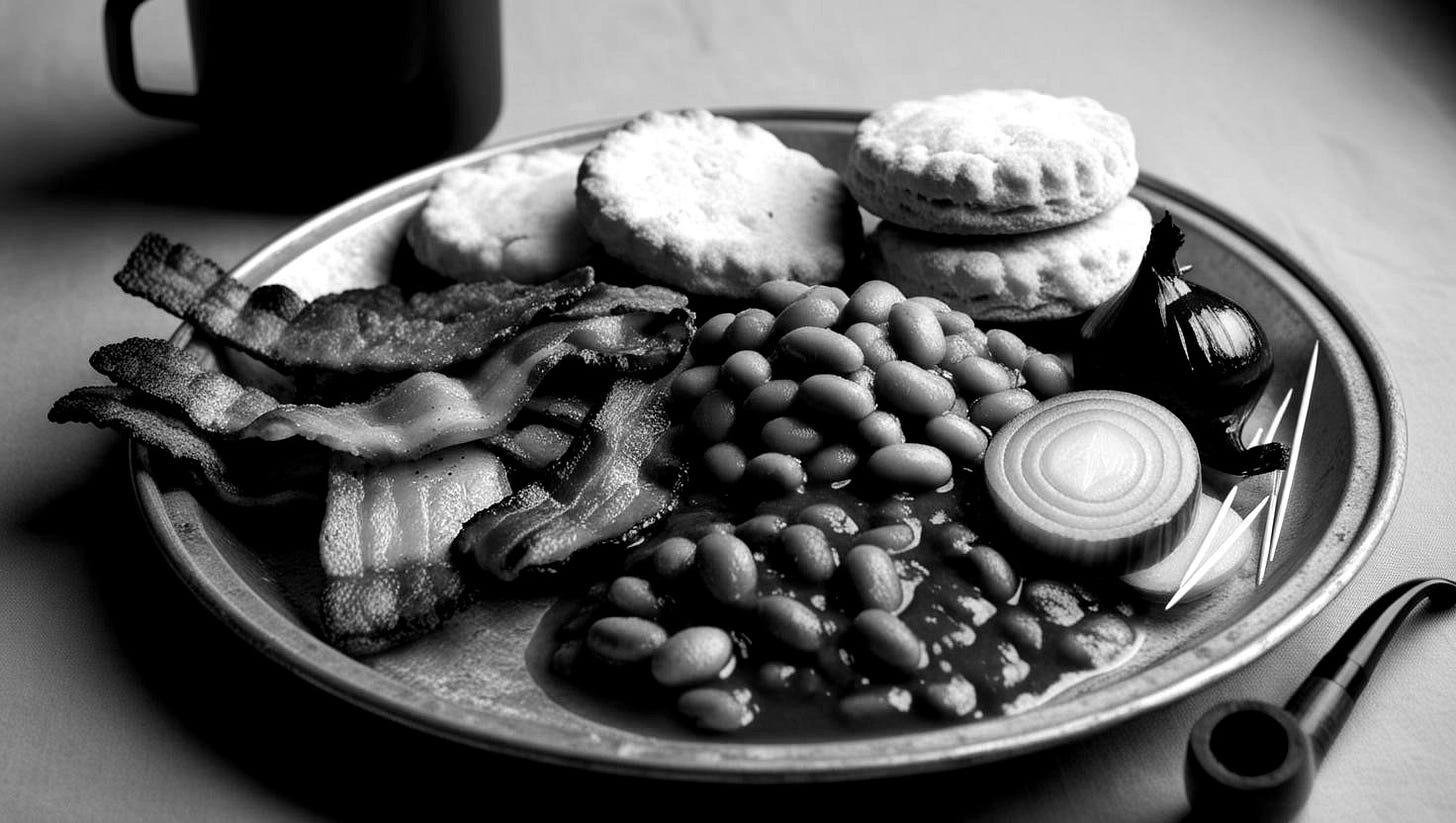

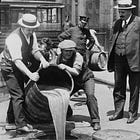
You don't appreciate how much detail goes into both the planning and carrying out such an adventure, just the mere choosing of a campsite could prevent the men with difficult decisions. Then to set up a base and campfire, then cook and eat, it must have been exhausting.
The Falls of the Ohio would be treacherous for canoe travelers. These are intrepid men, and not young either!